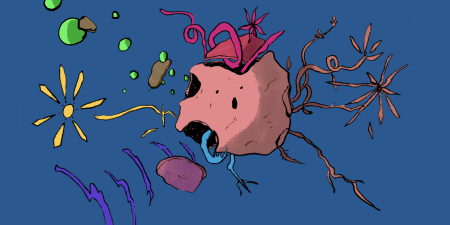While psychiatry, like other specialties, has played explicit roles in palliative care of patients with life-threatening illnesses such as heart failure or cancer, palliative care has not traditionally been viewed as a legitimate approach to helping patients with life-threatening, treatment-resistant mental illnesses.1 By some estimates, at least a fifth of patients with psychiatric disorders experience treatment resistance,2 most commonly defined as an inadequate reduction in symptom severity.3 Palliative approaches to psychiatry can be controversial because they concede an uncomfortable truth: pursuing curative pharmacotherapy of some mental illnesses, such as severe persistent schizophrenia, depression, or anorexia nervosa, might do more harm than good. For the 20% to 50% of patients with schizophrenia who experience treatment resistance,4 exposure to further antipsychotics might be intolerable5 or inconsistent with their goals.6 In major depression, rates of remission after successive medication trials decrease exponentially, often resulting in polypharmacy.7
Rather than cycling through more interventions with marginal utility, responding with care to the needs of these patients requires prioritizing symptom management and quality of life, reducing harm from aggressive interventions, and minimizing use of physical and chemical force. This issue of the AMA Journal of Ethics explores palliative psychiatry as one response to pharmacological futility, renewing attention on patients whose illnesses and symptoms challenge our faith in health care as a life-affirming source of hope. This issue also demonstrates how inquiry into palliative psychiatry—at the patient, health system, social, and policy levels—can reinvigorate core philosophy of medicine investigations into what health care is for.
References
-
Trachsel M, Irwin SA, Biller-Andorno N, Hoff P, Riese F. Palliative psychiatry for severe persistent mental illness as a new approach to psychiatry? Definition, scope, benefits, and risks. BMC Psychiatry. 2016;16:260.
- Howes OD, Thase ME, Pillinger T. Treatment resistance in psychiatry: state of the art and new directions. Mol Psychiatry. 2022;27(1):58-72.
- Demyttenaere K. What is treatment resistance in psychiatry? A “difficult to treat” concept. World Psychiatry. 2019;18(3):354-355.
-
Nucifora FC Jr, Woznica E, Lee BJ, Cascella N, Sawa A. Treatment resistant schizophrenia: clinical, biological, and therapeutic perspectives. Neurobiol Dis. 2019;131:104257.
-
Lieberman JA, Stroup TS, McEvoy JP, et al; Clinical Antipsychotic Trials of Intervention Effectiveness (CATIE) Investigators. Effectiveness of antipsychotic drugs in patients with chronic schizophrenia. N Engl J Med. 2005;353(12):1209-1223.
- Bridges JF, Slawik L, Schmeding A, Reimer J, Naber D, Kuhnigk O. A test of concordance between patient and psychiatrist valuations of multiple treatment goals for schizophrenia. Health Expect. 2013;16(2):164-176.
- Warden D, Rush AJ, Trivedi MH, Fava M, Wisniewski SR. The STAR*D Project results: a comprehensive review of findings. Curr Psychiatry Rep. 2007;9(6):449-459.



